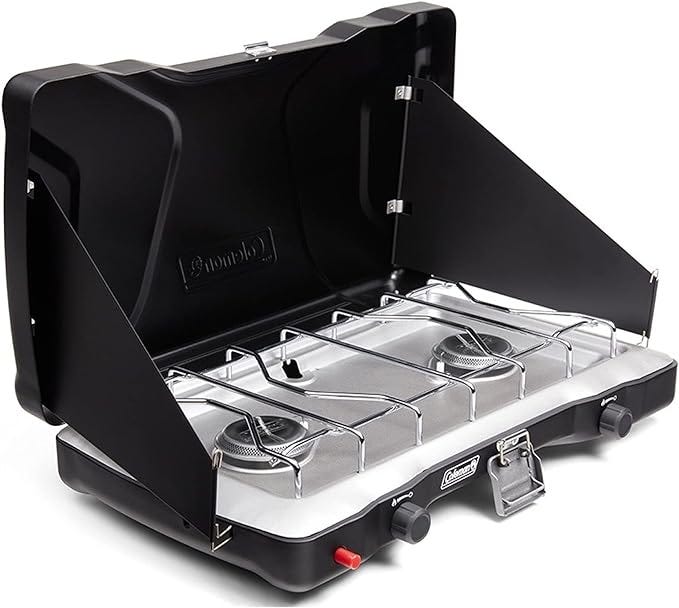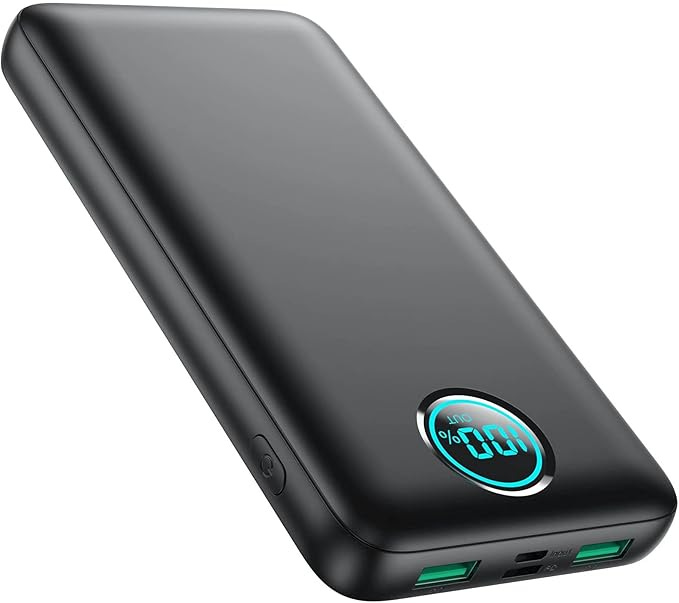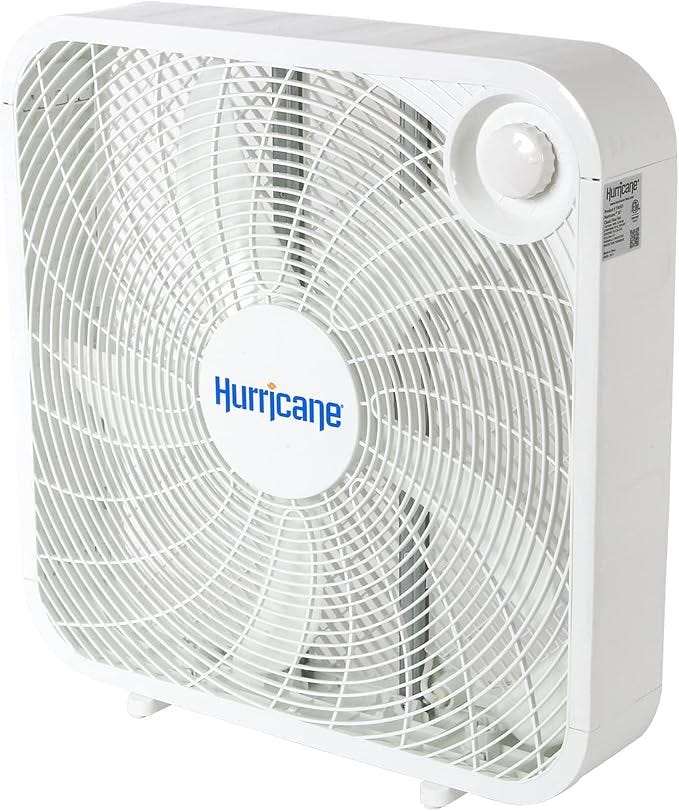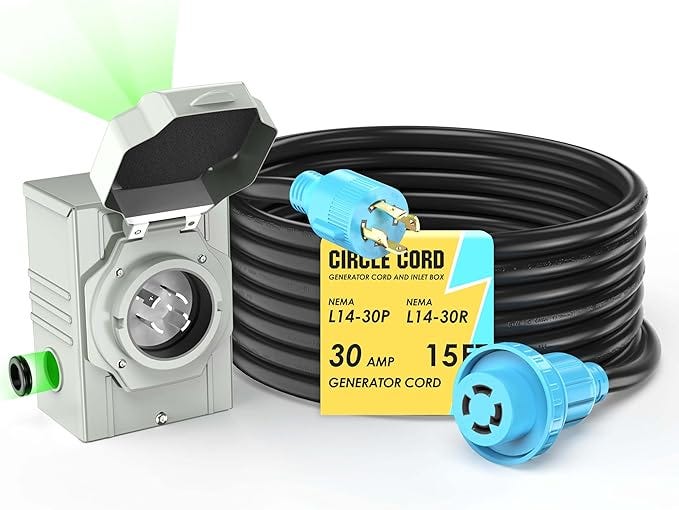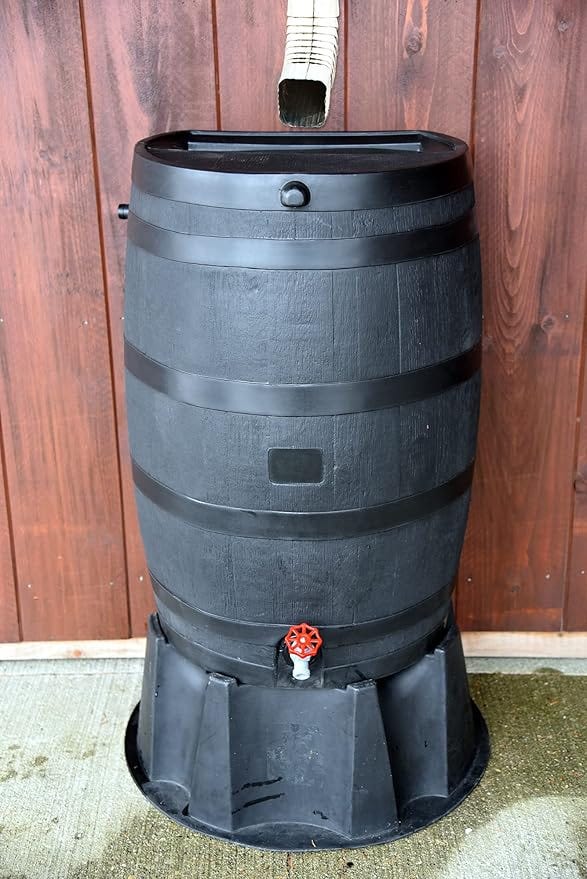Powerless but Prepared: Essential Hurricane Survival Hacks
Tropicana Field - Home of the Tampa Bay Rays - BRYAN R. SMITH/AFP / Getty Images
Arriving just two weeks after the misery wrought by Hurricane Helene, the system also knocked out power to more than 3 million customers, flooded barrier islands, tore the roof off a baseball stadium and toppled a construction crane.
If you've been following my Substack, you know I've been emphasizing preparedness for everything from EMPs to nuclear disasters. Hurricane Milton was a prime example of why. While the storm surge wasn't as bad as Helene, the high winds caused widespread tree damage & power outages. Over three million Floridians lost power, & my home was one of the last to be restored – 153 hours and 47 minutes, to be exact. I'm sharing my experience to offer advice that might help others better cope with similar situations.
*Disclaimer* - If local authorities have issued a mandatory evacuation order, please evacuate immediately. Do not attempt to stay, as it puts your life and the lives of first responders at risk. Remember, many shelters accept pets, so there's no need to leave them behind.
Pre-Planning for a Power Outage:
Many people start panic-buying as soon as they hear a storm or severe weather event is predicted to hit their area. Panic-buying also ensued with the Longshoreman’s port strike earlier this month as well as the ‘Plandemic’. For some odd reason, people think every event is going to cause them to have explosive diarrhea, un-quenchable thirst, & epic messes in the house. Hence, I suggest always have a large rotating stock of toilet paper, paper towels, bottled water & water filtration devices, & antibacterial cleaning products.
Water - The rule of thumb with water storage is a minimum of one gallon per person per day in your household. I would store at a minimum two-weeks worth of water per person. If you have limited storage, one way to account for water is to rely on your swimming pool if you have one or to buy a device called a WaterBob or AquaPod to line your bathtub with & fill it with water just before the storm strikes. Another option for water is to collect rain water in a designated rain barrel. This way you can have water for cleaning, bathing, & drinking (once purified).
Although my water was not affected (other than temperature-wise), a county over from mine had a boil-water notice put into effect. It was nice to have plenty on hand for drinking & cooking without worry.
Laundry - Before a potential power outage, it's wise to do a big laundry load & wash all your dirty clothes, towels, bedding, and blankets. You'll be grateful you did. After seven days without power, my laundry looked like I'd been on a long vacation! I even used some towels to soak up rainwater that seeped in through my bedroom window.
Hygiene - although you aren’t going on a date, pretend you are. Wash & blow-dry your hair, shave, & take care of your basic hygiene before a storm. Although this may seem like a ridiculous suggestion, on day three you will start to feel gross & really uncomfortable if you didn’t follow this suggestion. It may also be helpful to have bathing &/or baby wipes & hand sanitizer available.
Fuels - fill up your car(s), have several cans of gas with spout replacements (safe & easier to use) for the generator & or vehicles (if you decide to flee) & propane for the grill &/or camping stoves. Running two refrigerators, a chest freezer, & an occasional fan or appliance used approximately 1/2 of a gallon to a full gallon per hour depending on the draw. The generator was shut off at night & as long as no one opened the doors, the refrigerators & freezers kept within about 10 degrees from operating temperature over the course of approximately eight hours.
Generator - here are some helpful generator tips:
When running a generator, you should keep it at least 20 feet away from your home's doors, windows, and vents. This distance helps protect you from carbon monoxide gas, which is colorless, odorless, and can be deadly.
Here are some other tips for safely running a generator:
Location: Always run a generator outdoors on a level surface, such as a driveway, stone patio, or flat grass.
Exhaust: Direct the exhaust away from people, pets, and other structures.
Ventilation: Opening doors and windows is not enough ventilation to prevent carbon monoxide buildup.
Cover: If it's raining or snowing, use a generator tent or cover.
Fuel: Wait at least 20 minutes before refueling your generator.
Transfer switch: Have a licensed electrician install a transfer switch so you don't connect the generator directly to your household wiring.
Generator size: Choose the right size generator for your needs.
Electrician: Have a licensed electrician install your home generator to ensure it meets local electrical codes
I had a generator tent which protected it from the rain. Generators are loud & the exhaust is strong. The 20 foot rule will really protect you & your family from harm. Some people were running their generators in their garage which is a horrible mistake. You could smell them & see smoke collecting in the upper portions of the garage from 100 feet away! Teach your family members how to operate the generator in case you are busy with other tasks. If you charge the electric start beforehand, you or your family member won’t have to pull the cord, they can just flip the power switch.
Extension Cords - Having several long heavy gauge (12ga/20A) extension cords with multiple receptacle ends are a must in order to sustain the 20ft distancing rule & to connect your appliances from various locations from within your home. Just remember the longer the extension cord, the greater chance of voltage drop meaning you lose efficiency. Use only a length that is necessary.
Charging Battery Devices - devices to charge ahead of a potential power outage include; rechargeable batteries, flashlights, power tools, headphones, tablets, laptops, cell phones, power banks, & other chargeable appliances. I rotated two power banks during the week. Each power bank was able to charge my Apple watch & cellphone about two to three times depending on how low I allowed the batteries on the devices to go.
Flashlights - have plenty of LED flashlights with magnetic bases on hand. LED flashlights use less power than traditional bulb-type flashlights. Candles are an option but they are not only more hazardous, they can add heat to the home which may be undesired in hot & humid climates. If you fall asleep with a flashlight on or attach it onto a refrigerator to light up a room, it won’t matter if it stays on for hours. Position your flashlights in key areas like the kitchen, bathrooms, living room, & any high traffic areas. During the week, I used three different flashlights & the camera light on my phone for several tasks around the house. Solar lights that are traditionally used to line walkways may also be charged during the day & used to light up the home at night inside. Just make sure they are put away before the storm & replaced after the high winds have subsided.
Chainsaw - having a 16” or 18” gas-powered chain saw will help you clear your property of fallen trees. One gallon of gas will help you cut branches for the majority of the day vs. 45-50 minutes with an electric chainsaw.
Testing - testing your generators, chainsaw, grill, flashlights, radios, and other devices before a potential power outage is crucial. Fuel-powered equipment can be finicky, especially if it hasn't been used in a while. Sediment, water, and lack of use can render these devices useless. By testing them now, you can identify any issues and either fix them or replace them as needed
Outdoor Areas - secure all outdoor furniture, cushions, trash cans, pottery, flags, lights, & other outdoor decor so they don’t become flying hazards to your home or roadway areas. Examine the trees around your home & cut any low hanging or dead branches which may cause a hazard to your roof or windows. You may also choose to board-up your windows (the X-tape ‘trick’ is useless), move your vehicles away from trees &/or use your vehicle as a wind barrier for your garage door or front windows so they don’t receive enough force to cave in/break. Consider purchasing a wheel barrow if you don’t have one. They make yard debris cleanup so much easier after the storm.
Ice Packs -If you or a family member rely on insulin, medication, or refrigerated food, and you want to avoid frequent openings of your refrigerator, having plenty of ice packs and a sturdy cooler can help prevent spoilage. Ice packs can also keep you cool during a summer power outage or reduce swelling from injuries incurred during cleanup. To make your own ice packs, fill gallon freezer bags with water and freeze them before the storm. To make a ‘gel’ ice pack for medical purposes:
To make gel ice packs, all you need is a quart or gallon of plastic freezer bags, two cups of water, and one cup of rubbing alcohol. Once you fill the freezer bag with the water and rubbing alcohol, get the air out of the bag and close it. Then, place it in another freezer bag and leave it in the freezer for an hour.
Fans, Portable/Window Air Conditioners, Portable Heaters - depending on the climate in your area during a power outage, having box fans, portable/window air conditioners, &/or portable space heaters can really aid in your comfort without taking too much generator power (depending on the size of the units). In Florida, having a box fan in the window really aided in air circulation during the day. If were the height of summer, a window air conditioner would have at least cooled one room under generator power during the day. If your power goes out during the winter, you may consider having a Mr. Buddy portable heater which is safe for use indoors & can run on propane. The victims of Helene in North Carolina are really finding these useful during the cold mountain nights (Mr. Buddy donated several hundred of these units to victims).
During the Outage -
During Milton, there were over 130 reported tornadoes in Florida. The beginning of the storm is NOT the time to evacuate. You do not want to be on the road when the downpours & winds start wreaking havoc. While the storm is happening, keep an eye on what is going on outdoors & be alert for tornado warnings. If your power goes out, have a battery powered/hand crank NOAA weather radio or weather application on your phone to monitor for warnings. Report your power outage to your power company immediately. Reporting links often available on your power company’s website.
Some of my tarps began lifting due to the wind & I was able to better secure them with free weights. I was also able to re-secure my lanai door which swung open & I removed some branches which had fallen near windows before they became more of a hazard. The 90 mph wind was blowing the rain horizontal & I ended up using two dish cloths to plug up a window frame as water was seeping in. Small issues can be taken care of immediately before they have the opportunity to become big issues.
Once the power goes out, decide whether to use your generator immediately or wait a bit. As long as you keep the refrigerator and freezer doors closed, your cold food and drinks should stay safe for a while. If you or a loved one rely on a CPAP machine, consider investing in a solar generator. Solar generators are quiet, non-toxic, and can be used indoors. They're also a good option if you don't want to advertise that you have power or fuel. I had a neighbor run out of fuel for his generator and ask me for some (he offered to pay). I was happy to help, but it's something to consider in a prolonged situation. From now on, I'll be keeping my garage closed. It's not that I don't want to help, but things can get tense in desperate times.
The best time to clean-up your property is the morning after the storm. First, ensure no power lines have fallen on your property & that you can safely begin your cleanup. The branches & loose debris will be easier to pick up while they’re freshly fallen. Wear long pants, long sleeves, & gloves which will aid in the prevention of cuts/abrasions from brush/debris. Put your tree debris on the grass between the sidewalk & the road. Do not block the road or sidewalk with tree debris. If you have a truck or trailer, many waste facilities will take the brush for free as part of disaster relief efforts. Visit your county’s website to confirm which sites are taking debris & their operating hours. Between Helene & with Milton incoming, Governor DeSantis authorized collection sites to be open 24/7 in order to prevent debris from causing more damage.
Although it is tempting to survey the damage in your area. Do not go out on the road unless you absolutely have to for at least 24-hours after the storm passes. Traffic lights in Florida were out for three days making busy intersections treacherous. Downed trees, power lines, & flooded roads are not situations you want to put yourself in especially if you have a small car.
Conserve your fuel to ensure you can last at least a week without refueling. Gas stations in my area were out of fuel for two days before & four days after the storm. Those with fuel had lines that could take an hour. There were fights & even reports of guns being drawn at people suspected of cutting the line. It only takes a few hours of panic for people to lose control. Valuable law enforcement resources were wasted on traffic control & policing gas stations, dealing with people who can't behave like adults in difficult times. Don't put yourself in dangerous situations due to lack of preparation. It's not worth your life.
Although you may be able to get by taking cold showers & using cleansing cloths, it may be time to dust off that gym membership. I’m a member & Master Personal Trainer at several gyms. When two of my three gyms were closed, I was able to go to one of my gyms to train & take a hot shower. If you don’t have a gym membership, you may want to consider getting a free trial or to join one of those $10/month, cancel anytime kind of gyms in order to maintain your hygiene.
Some people went to local hotels to find respite from the power outage but there’s no guarantee they will have power, space, the ability to make key cards or handle reservations. Oftentimes, hotels are the first to sell out near a potential disaster area since they serve as housing for federal & out-of-state response personnel. Also, consider the cause of the power outage as your travel may be limited due to floods, downed power lines, or fallen trees.
What I am Planning Differently -
Generator Modification - although I am not yet in a position to purchase & install a whole home generator, I am going to have a 30 amp generator power inlet box with locking connector installed. This way once the power goes out, I can disconnect the main breaker box & attach the generator to the power inlet box. The generator will then power whichever breakers I decide to turn on (make sure you map your breakers ahead of time). Knowledge of the power demands of your appliances & their respective locations within your main breaker box is essential. Having a power inlet box installed will eliminate the need for various extension cords running throughout the home & potentially causing a tripping hazard.
Rain Water Collection - I did not lose running water…this time. I had plenty of water to drink but I would not have wanted to waste spring water on activities like washing dishes, flushing the toilets, or bathing. I plan on purchasing a 50-gallon rain water collection barrel which lays flush against the home & collects the rain water from the gutter system. I could use the rain barrel for watering my garden or lawn during day-to-day activities.
Spare Screen Material & Spline - Some of the screen on my lanai tore in the storm because of flying debris. As one would expect, Home Depot & Lowes were out of the materials due to such high demand. I just happened to luck out a week later & catch a truck unloading a roll of 8’x25’ screen materials. I will keep in stock screen materials, spline, a screen repair tool kit & a cable skinning utility knife for instances like these. For $50-60, you can re-screen an entire patio whereas professionals may charge $100/panel & their wait list may be quite lengthy.
Despite the inconvenience of being without power for nearly a week, I'm glad I had the opportunity to put my preparedness advice into practice. You might think you've considered everything until you're faced with a real-world situation. Just like any scenario, analyze it, learn from the experience, & refine your plans. I have a strong feeling that Helene and Milton were just a taste of what's to come, both domestically and internationally, especially as the election approaches.
Until next time my fellow Warriors, stay informed, stay vigilant, Ever Forward!





